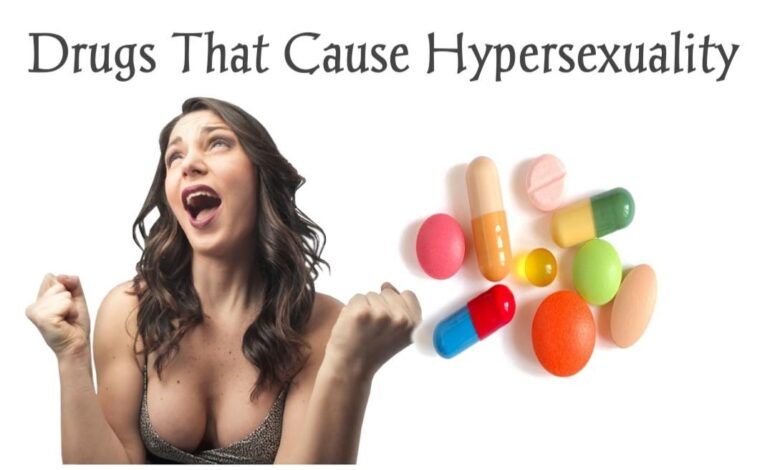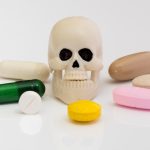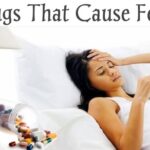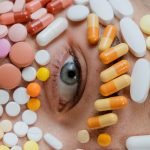List of Drugs That Cause Hypersexuality

Hypersexuality also known as compulsive sexual behavior or sexual addiction is an excessive preoccupation with sexual fantasies, urges, or behaviors that are difficult to control, cause distress, or negatively affect your health, job, relationships, or other parts of your life.
Recent psychiatric literature has used the term “hypersexuality” to denote pathologically increased sexual behavior. Various patterns of increased sexuality have been described in people, including sexuality that is excessive, developmentally precocious, compulsive, aggressive, or otherwise socially inappropriate. However, according to the American Psychiatric Association, hypersexuality is not a formal diagnosis because there is a lack of evidence to show that it is a health condition rather than a set of symptoms.
Can drugs or medication cause hypersexuality?
Yes, medications and illicit drugs can cause hypersexuality. A report published in the Journal of Clinical Psychopharmacology, discussed the first documented case of a female patient who experienced a venlafaxine-associated increase in libido which required therapy change for her depression and anxiety. Studies indicate that approximately 40–50% of male stimulant users and 20–30% of female users experience aphrodisiac effects from cocaine or methamphetamine.
The reasons for this gender discrepancy are unknown. Once the link between sex and drug abuse and dependence has been established, sexual activity of any kind can become a strong relapse trigger for stimulant use. Similarly, drug use can trigger a return to drug-related hypersexual behaviors. It can be very hard to break out of this “reciprocal relapse” pattern in which one addictive behavior reliably leads to engaging in the other behavior.

List of Drugs That Cause Hypersexuality
Legal medications and illicit drugs can cause hypersexuality, the list of drugs that cause hypersexuality include:
Aripiprazole: Aripiprazole, sold under the brand name Abilify among others, is an atypical antipsychotic. It is primarily used in the treatment of schizophrenia and bipolar disorder. Aripiprazole can enhance sexual desire in patients with schizophrenia. The drug’s dopaminergic agonistic effects at the mesolimbic circuit especially at nucleus accumbens may be responsible for the hypersexuality phenomenon.
Vyvanse: Lisdexamfetamine, sold under the brand name Vyvanse among others, is a medication that is a derivative of amphetamine. It is mainly used to treat attention deficit hyperactivity disorder in people over the age of five as well as moderate-to-severe binge eating disorders in adults. A known side effect of amphetamines including Vyvanse is hypersexuality, the consumption of stimulants may lead to hypersexuality and excessive masturbation.
Mephedrone: Mephedrone is a recent designer drug, commonly referred to as bath salts, and is one of the most popular recreationally used new psychoactive substances. Like MDMA, it shares similarities with stimulants and with hallucinogens, and psychopharmacological research indicates that it is similar to stimulant drugs, such as amphetamines. Studies indicate that mephedrone use results in such typical stimulant-related subjective effects as the intensification of sensory experiences and sexual arousal.
Cocaine: Cocaine is a tropane alkaloid and stimulant drug obtained primarily from the leaves of two coca species, Erythroxylum coca, and Erythroxylum novogranatense. It is most commonly used as a recreational drug and euphoriant. Available evidence reveals that cocaine prolongs sexual arousal or causes spontaneous erections and orgasms. As a result, people who use cocaine often report an increased sex drive in addition to the more standard cocaine effects, such as euphoria, confidence, and increased energy. This strong desire for intimacy can lead to impulsiveness and poor decision-making.
Methamphetamine: Methamphetamine is a powerful, highly addictive stimulant that affects the central nervous system. It takes the form of a white, odorless, bitter-tasting crystalline powder that easily dissolves in water or alcohol. Methamphetamine was developed early in the 20th century from its parent drug, amphetamine, and was used originally in nasal decongestants and bronchial inhalers. Methamphetamine users report having heightened sexual pleasure, numerous sexual partners, and engaging in unprotected sex due to loss of inhibitory control. This compulsive sexual behavior contributes to the increased prevalence of sexually transmitted infections, but the neural basis for this is unknown.
How To Manage Drug-Induced Hypersexuality
Managing drug-induced hypersexuality can be challenging, and it requires a comprehensive approach that involves medical, psychological, and behavioral interventions. Here are some strategies that may be helpful:
1. Consult with a healthcare provider: If you or someone you know is experiencing drug-induced hypersexuality, it’s important to consult with a healthcare provider who can evaluate the situation and provide appropriate treatment. The provider may adjust the dose or type of medication, or switch to an alternative medication that does not have this side effect.
2. Therapy: Therapy can be helpful in managing drug-induced hypersexuality. Cognitive behavioral therapy (CBT) and mindfulness-based therapies can help individuals recognize triggers and learn coping strategies to manage their behaviors. Sex therapy or couples therapy may also be helpful in addressing relationship and intimacy issues.
3. Support groups: Support groups can provide individuals with a safe and supportive environment to discuss their experiences and receive emotional support.
4. Self-help strategies: Individuals can try self-help strategies such as exercising, practicing relaxation techniques, engaging in hobbies or other activities, and avoiding triggers that may lead to hypersexual behavior.
5. Medication: In some cases, medication may be prescribed to help manage hypersexual behavior. For example, medications that decrease libido or treat obsessive-compulsive disorder may be effective in reducing hypersexual behavior.
It’s important to note that managing drug-induced hypersexuality can be a complex and ongoing process, and it may require a combination of different strategies. It’s essential to seek professional help and support to develop a personalized plan that works best for you.





